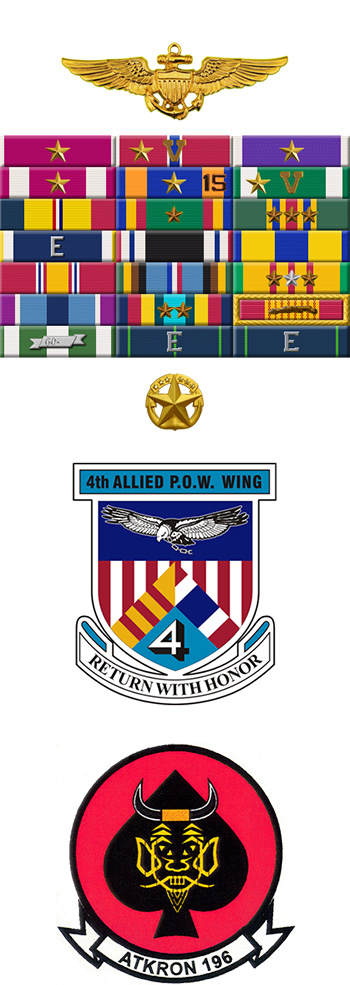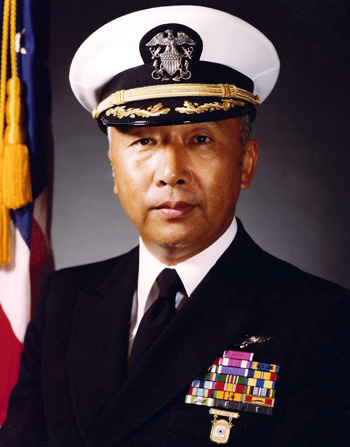
|
Gordon R. Nakagawa |
 |
|||
| Rank, Service | ||||
Captain O-6, U.S. Navy |
||||
| Veteran of: | ||||
|
||||
| Tribute: | ||||
Gordon Nakagawa was born on June 13, 1935, in Auburn, California. He was commissioned through the Navy ROTC program at the University of California at Berkeley on February 7, 1958, and then completed flight training, receiving his designation as a Naval Aviator at NAS Kingsville, Texas, in August 1959. His first assignment was as an S2F Tracker pilot with VS-23 at NAS North Island, California, from September 1959 to September 1960, followed by service with VS-25 from September 1960 to November 1962. LT Nakagawa served as a program manager for ICBM and SLBM testing at the Pacific Missile Range in Hawaii from December 1962 to July 1964, and then completed his Master's degree in Electrical Engineering with the Naval Postgraduate School at Monterey, California, from July 1964 to December 1966. He attended Jet Instrument Training with VF-126 at NAS Miramar, California, from January to February 1967, and then completed A-6 Intruder Replacement Air Group training with VA-123 at NAS Whidbey Island, Washington, from February to July 1967. LCDR Nakagawa next served as an A-6 pilot with VA-165 at NAS Whidbey Island and deployed to Southeast Asia aboard the aircraft carrier USS Ranger (CVA-61) from July 1967 to June 1969, followed by service as a Guided Missile Design instructor at the U.S. Naval Academy from July 1969 to July 1971. After completing A-6 Replacement Air Group training with VA-128, CDR Nakagawa served as an A-6 pilot with VA-196 at NAS Whidbey Island and deployed to Southeast Asia aboard the aircraft carrier USS Enterprise (CVAN-65) from December 1971 until he was forced to eject over North Vietnam and was taken as a Prisoner of War on December 21, 1972. After spending 98 days in captivity, he was released during Operation Homecoming on March 29, 1973. After recovering from his injuries, CDR Nakagawa returned to flying A-6 Intruders with VA-196 at Whidbey Island, and later served as Commanding Officer of VA-196 from July 1974 to June 1975. During this time he became one of the few Vietnam POWs to fly combat missions in Southeast Asia after his repatriation when he flew protective cover for the evacuation of Saigon in April 1975. His next assignment was on the staff of the Commander, Naval Air Force, U.S. Pacific Fleet from June 1975 to July 1977, followed by service as Air Operations and Operations Officer aboard the aircraft carrier USS Constellation (CV-64) from July 1977 to August 1979. CAPT Nakagawa served as Director of the Systems Engineering Management Division and the Evaluation Division, and as Assistant Director of the Avionics Division with Naval Air Systems Command at NAS Patuxent River, Maryland, from September 1979 to May 1983, and then as Commanding Officer of NAS Point Magu, California, from September 1983 to August 1985. His final assignment was as Chair of Tactical Analysis with the Naval Postgraduate School in Monterey, California, from September 1985 until his retirement from the Navy on September 29, 1989. Gordon Nakagawa died on August 23, 2011, and was buried at Arlington National Cemetery. |
||||
|
||||

